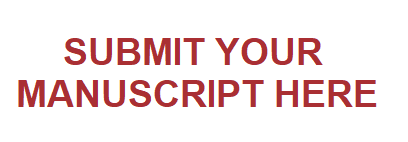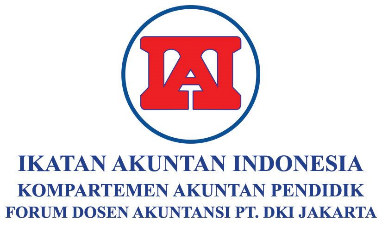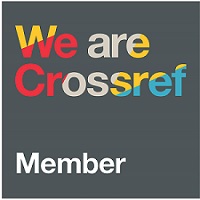Penghindaran Pajak: Karakter Eksekutif, Komite Audit, Koneksi Politik, dan Kualitas Audit
DOI:
https://doi.org/10.62108/asrj.v1i1.4758Abstract
Penelitian ini dilakukan untuk mengetahui pengaruh dari karakter eksekutif, komite audit, koneksi politik, dan kualitas audit terhadap penghindaran pajak pada perusahaan manufaktur yang terdaftar di Bursa Efek Indonesia (BEI) periode tahun 2018 – 2020. Penelitian ini merupakan jenis penelitian kuantitatif yang menggunakan data sekunder berupa laporan keuangan dan laporan tahunan perusahaan. Metode pengambilan sampel dalam penelitian ini menggunakan purposive sampling hingga menghasilkan sebanyak 79 sampel perusahaan manufaktur. Teknik analisis data pada penelitian ini menggunakan uji pemilihan model regresi data panel, uji asumsi klasik, uji hipotesis, dan uji regresi linier berganda. Berdasarkan hasil analisis data dapat disimpulkan bahwa karakter eksekutif, komite audit, dan koneksi politik tidak memiliki pengaruh signifikan terhadap penghindaran pajak. Sedangkan, kualitas audit memiliki pengaruh signifikan terhadap penghindaran pajak.
References
Abdillah, M. R., & Nurhasanah. (2020). Pengaruh Risiko Perusahaan, Kualitas Audit dan Komite Audit Terhadap Tax Avoidance yang Terdaftar di Bursa Efek Indonesia Tahun 2015-2018. Jurnal Ekonomi Dan Bisnis, 13(1), 82–98. https://stienas-ypb.ac.id/jurnal/index.php/jdeb/article/view/243
Amalia, D., & Ferdiansyah, S. (2019). Does Political Connection, Executive Character, and Audit Quality Affect the Tax Avoidance Practice? Evidence in Indonesia. Sebelas Maret Business Review, 4(2), 93–101. https://doi.org/10.20961/smbr.v4i2.35905
Annisa, N. A., & Kurniasih, L. (2012). Pengaruh Corporate Governance Terhadap Tax Avoidance. Jurnal Akuntansi & Auditing, 8(2), 95–189.
Aprilia, V., Majidah, & Asalam, A. G. (2020). Pengaruh Intensitas Aset Tetap, Karakter Eksekutif, Koneksi Politik, dan Leverage Terhadap Tax Avoidance (Studi pada Perusahaan Makanan dan Minuman yang Terdaftar di Bursa Efek Indonesia Tahun 2014 - 2018). Jurnal Ilmiah Akuntansi Dan Finansial Indonesia, 3(2), 15–26. https://doi.org/10.31629/jiafi.v3i2.2205
Ardianti, P. N. H. (2019). Profitabilitas, Leverage, dan Komite Audit Pada Tax Avoidance. E-Jurnal Akuntansi Universitas Udayana, 26(3), 2020–2040. https://doi.org/10.24843/EJA.2019.v26.i03.p13
Ardillah, K., & Prasetyo, A. (2021). Executive Compensation, Executive Character, Audit Committee, and Audit Quality on Tax Avoidance. Akuntabilitas : Jurnal Ilmu Akuntansi, 14(2), 169–186. https://doi.org/10.15408/akt.v14i2.22114
Comprix, J., Graham, R. C., & Moore, J. A. (2011). Empirical evidence on the impact of book-tax differences on divergence of opinion among investors. Journal of the American Taxation Association, 33(1), 51–78. https://doi.org/10.2308/jata.2011.33.1.51
Dang, V. C., & Tran, X. H. (2021). The impact of financial distress on tax avoidance: An empirical analysis of the Vietnamese listed companies. Cogent Business and Management, 8(1). https://doi.org/10.1080/23311975.2021.1953678
Dewi, N. N. K., & Jati, I. K. (2014). Pengaruh Karakter Eksekutif, Karakteristik Perusahaan, dan Dimensi Tata Kelola Perusahaan yang Baik Pada Tax Avoidance di Bursa Efek Indonesia. E-Jurnal Akuntansi Universitas Udayana, 6(2), 249–260.
Eksandy, A. (2017). Pengaruh Komisaris Independen, Komite Audit, dan Kualitas Audit Terhadap Penghindaran Pajak (Tax Avoidance). COMPETITIVE Jurnal Akuntansi Dan Keuangan, 1(1), 1. https://doi.org/10.31000/competitive.v1i1.96
Faccio, M. (2006). Politically connected firms. The American Economic Review, 96(1), 369–386. https://doi.org/10.1257/000282806776157704
Fauzan, F., Ayu, D. A., & Nurharjanti, N. N. (2019). The Effect of Audit Committee, Leverage, Return on Assets, Company Size, and Sales Growth on Tax Avoidance. Riset Akuntansi Dan Keuangan Indonesia, 4(3), 171–185. https://doi.org/10.23917/reaksi.v4i3.9338
Ferdiawan, Y., & Firmansyah, A. (2017). Pengaruh Political Connection , Foreign Activity , dan Real Earnings Management Terhadap Tax Avoidance Pendapatan Perpajakan merupakan. Jurnal Riset Keuangan Dan Akuntansi, 5(3), 1601–1624. https://doi.org/https://doi.org/10.17509/jrak.v5i3.9223
Fitria, G. N. (2018). Pengaruh kepemilikan institusional, komisaris independen, karakter eksekutif dan size terhadap tax avoidance. Jurnal Profita : Komunikasi Ilmiah Akuntansi Dan Perpajakan, 11(3), 438–451. http://publikasi.mercubuana.ac.id/index.php/profita/article/view/4315
Hanafi, U., & Harto, P. (2014). Analisis Pengaruh Kompensasi Eksekutif, Kepemilikan Saham Eksekutif dan Preferensi Risiko Eksekutif terhadap Penghindaran Pajak Perusahaan. Diponegoro Journal of Accounting, 3(2), 1–11.
Hasanah, A. (2021). Analisis Pengaruh Good Corporate Governance Terhadap Tax Avoidance. Journal of Applied Managerial Accounting, 5(2), 121–131. https://doi.org/10.30871/jama.v5i2.3532
Hifnalisa, K. (2022). Pengaruh Capital Intensity dan Koneksi Politik terhadap Tax Avoidance. Fair Value : Jurnal Ilmiah Akuntansi Dan Keuangan, 5(1), 575–586.
Idzniah, U. N. L., & Bernawati, Y. (2020). Board of Directors, Audit Committee, Executive Compensation and Tax Avoidance of Banking Companies in Indonesia. Journal of Accounting and Strategic Finance, 3(2), 199–213. https://doi.org/10.33005/jasf.v3i2.111
Imanuella, K., & Damayanti, T. W. (2022). Analisis Tingkat Koneksi Politik Terhadap Tax Avoidance : Perusahaan Manufaktur di BEI Tahun 2015-2019. Jurnal PETA, 7(1), 38–60. https://journal.stieken.ac.id/index.php/peta/article/view/499
Inkiriwang, K. G. (2017). Perspektif Hukum Terhadap Upaya Penghindaran Pajak Oleh Suatu Badan Usaha. Lex Et Societatis, 5(4), 13–18.
Jensen, M. ., & Meckling, W. . (1976). Theory of The Firm, Managerial Behaviour, Agency Costs & Ownership Structure. Journal of Financial Economics, 8(1), 1–9.
Jusman, J., & Nosita, F. (2020). Pengaruh Corporate Governance, Capital Intensity dan Profitabilitas Terhadap Tax Avoidance pada Sektor Pertambangan. Jurnal Ilmiah Universitas Batanghari Jambi, 20(2), 697. https://doi.org/10.33087/jiubj.v20i2.997
Kemenkeu.go.id. (2021). Pandemi Covid-19 Mempengaruhi Kinerja APBN 2020. Kemenkeu.Go.Id. https://www.kemenkeu.go.id/publikasi/berita/pandemi-covid-19-mempengaruhi-kinerja-apbn-2020/#:~:text=Realisasi pendapatan negara pada APBN,Rabu (25%2F08)
Khairunisa, K., Hapsari, D. W., & Aminah, W. (2017). Kualitas Audit, Corporate Social Responsibility, Dan Ukuran Perusahaan Terhadap Tax Avoidance. Jurnal Riset Akuntansi Kontemporer, 9(1), 39–46.
Kurniasih, T., & Sari, M. M. R. (2013). Pengaruh Return on Assets, Leverage, Corporate Governance, Ukuran Perusahan dan Kompensasi Rugi Fiskal pada Tax Avoidance. Buletin Studi Ekonomi, 18(1), 58–66. https://doi.org/10.15640/ijat.v5n2a3
Kurniawan, A. M. (2018). Pengaturan Pembebanan Bunga Untuk Mencegah Penghindaran Pajak. Simposium Nasional Keuangan Negara, 285–303.
Lubis, Y. C., Ummayro, N., & Sipahutar, T. T. U. (2017). Audit Committee , Company Size , Leverage and Accounting Conservatism on Tax Avoidance. Budapest International Research and Critics Institute-Journal (BIRCI-Journal), 2295–2304. https://doi.org/10.33258/birci.v5i1.3828
Maidina, L. P., & Wati, L. N. (2020). Pengaruh Koneksi Politik, Good Corporate Governance Dan Kinerja Keuangan Terhadap Tax Avoidance. Jurnal Akuntansi, 9(2), 118–131. https://doi.org/10.37932/ja.v9i2.95
Mais, R. G., & Patminingih, D. (2017). Effect of good corporate governance on tax avoidance of the company in listed of the indonesia stock exchange. Jurnal STEI Ekonomi, 26(2), 230–243.
Munawaroh, M. A., & Ramdany. (2020). Peran CSR, Ukuran Perusahaan, Karakter Eksekutif Dan Koneksi Politik Terhadap Potensi Tax Avoidance. Jurnal Akuntansi, 8(2), 109–121. https://doi.org/10.37932/ja.v8i2.70
Nugraha, M. I., & Mulyani, S. D. (2019). Peran Leverage Sebagai Pemediasi Pengaruh Karakter Eksekutif, Kompensasi Eksekutif, Capital Intensity, Sales Growth Terhadap Tax Avoidance. Jurnal Akuntansi Trisakti, 6(2), 301–324. https://doi.org/10.25105/jat.v6i2.5575
Oktamawati, M. (2017). Pengaruh Karakter Eksekutif, Komite Audit, Ukuran Perusahaan, Leverage, Pertumbuhan Penjualan, Dan Profitabilitas Terhadap Tax Avoidance. Jurnal Akuntansi Bisnis, 15(1), 23–40. https://doi.org/10.24167/JAB.V15I1.1349
Paligorova, T. (2010). Corporate Risk-Taking and Ownership Structure. SSRN Electronic Journal. https://doi.org/10.2139/ssrn.1364393
Pitaloka, S., & Merkusiwati, N. K. L. A. (2019). Pengaruh Profitabilitas, Leverage, Komite Audit, dan Karakter Eksekutif Terhadap Tax Avoidance. E-Jurnal Akuntansi, 27(2), 1202–1230. https://doi.org/10.24843/eja.2019.v27.i02.p14
Pratiwi, H. A., & Pramita, Y. D. (2021). Pengaruh Srategi Bisnis, Transfer Pricing, Koneksi Politik, Dan Intensitas Aset Tetap Terhadap Tax avoidance (Studi Empiris pada Perusahaan Manufaktur yang Terdaftar di BEI 2015 – 2019). Borobudur Accounting Review, 1(2), 196–209.
Pratomo, D., & Rana, R. A. (2021). Pengaruh Kepemilikan Institusional, Komisaris Independen Dan Komite Audit Terhadap Penghindaran Pajak. JAK (Jurnal Akuntansi) Kajian Ilmiah Akuntansi, 8(1), 91–103. https://doi.org/10.30656/jak.v8i1.2487
Prawati, L. D., & Hutagalung, J. P. U. (2020). the Effect of Capital Intensity, Executive Characteristics, and Sales Growth on Tax Avoidance. Journal of Applied Finance & Accounting, 7(1), 1–8. https://doi.org/10.21512/jafa.v7i2.6378
Primasari, N. H. (2019). Leverage, Ukuran Perusahaan, Profitabilitas, Pertumbuhan Penjualan, Proporsi Komisaris Independen dan Kualitas Audit Terhadap Tax Avoidance (Studi Empiris pada Perusahaan Manufaktur yang Terdaftar di Bursa Efek Indonesia Periode 2014-2016). Jurnal Akuntansi Dan Keuangan, 8(1), 21–40.
Purwanti, S. M., & Sugiyarti, L. (2017). Pengaruh Intensitas Aset Tetap, Pertumbuhan Penjualan dan Koneksi Politik Terhadap Tax Avoidance. Jurnal Riset Akuntansi & Keuangan, 5(3), 1625–1641.
Sahrir, Sultan, & Sofyan, S. (2021). Pengaruh Koneksi Politik, Intensitas Aset Tetap, Komisaris Independen, Profitabilitas Dan Leverage Terhadap Tax Avoidance. Jurnal Penelitian Ekonomi Akuntansi (JENSI), 5(1), 14–30. https://doi.org/10.33059/jensi.v5i1.3517
Sari, K., & Somoprawiro, R. M. (2020). Pengaruh Corporate Governance, Koneksi Politik dan Profitabilitas Terhadap Potensi Tax Avoidance. Jurnal Akuntansi, 9(1), 90–103. https://doi.org/10.37932/ja.v9i1.78
Sari, N., Luthan, E., & Syafriyeni, N. (2020). Pengaruh Profitabilitas, Leverage, Komisaris Independen, Kepemilikan Institusional, dan Ukuran Perusahaan terhadap Penghindaran Pajak pada Perusahaan Manufaktur yang Terdaftar di Bursa Efek Indonesia pada Tahun 2014-2018. Jurnal Ilmiah Universitas Batanghari Jambi, 20(2), 376. https://doi.org/10.33087/jiubj.v20i2.913
Shifa, R. D., & Masripah. (2022). Penghindaran Pajak : Pertumbuhan Penjualan, Strategi Bisnis, dan Koneksi Politik. In Buku Monograf (p. 104).
Suardana, K. A. (2014). Pengaruh Corporate Governance, Profitabilitas dan Karakteristik Eksekutif pada Tax Avoidance Perusahaan Manufaktur. E-Jurnal Akuntansi Universitas Udayana, 9(2), 525–539.
Subagiastra, K., Arizona, I. P. E., & Mahaputra, I. N. K. A. (2016). Pengaruh Profitabilitas, Kepemilikan Keluarga, Dan Good Corporate Governance Terhadap Penghindaran Pajak. Jurnal Ilmiah Akuntansi, 1(2), 167–193.
Sudaryo, Y., Purnamasari, D., & Kartikawati, G. (2018). Pengaruh Profitabilitas, Leverage, Kualitas Audit, dan Komite Audit Terhadap Tax Avoidance Pada Perusahaan Manufaktur Yang Terdaftar Pada Bursa Efek Indonesia Periode 2013-2017. Jurnal Indonesia Membangun, 17(3), 15–32.
Sudibyo, Y. A., & Jianfu, S. (2016). Political connections, state owned enterprises and tax avoidance: An evidence from Indonesia. Corporate Ownership and Control, 13(3), 279–283. https://doi.org/10.22495/cocv13i3c2p2
Sulistiyanti, U., & Nugraha, R. A. Z. (2019). Corporate Ownership, Karakteristik Eksekutif, Dan Intensitas Aset Tetap Terhadap Penghindaran Pajak. Jurnal Profita, 12(3), 361–377. https://doi.org/10.22441/profita.2019.v12.03.001
Triyanti, N. W., Titisari, K. H., & Dewi, R. R. (2020). Pengaruh Profitabilitas, Size, Leverage, Komite Audit, Komisaris Independen dan Umur Perusahaan terhadap Tax Avoidance. Jurnal Ilmiah Universitas Batanghari Jambi, 20(1), 113. https://doi.org/10.33087/jiubj.v20i1.850
Valensia, K., & Khairani, S. (2019). Pengaruh Profitabilitas, Financial Distress, Dewan Komisaris Independen Dan Komite Audit Terhadap Nilai Perusahaan Dimediasi Oleh Tax Avoidance (Studi Empiris Pada Perusahaan Sektor Industri Barang Konsumsi Yang Terdaftar Di Bursa Efek Indonesia Periode 2. Jurnal Akuntansi, 9(1), 47–62. https://doi.org/10.33369/j.akuntansi.9.1.47-64
Waluyo. (2017). the Effect of Good Corporate Governance on Tax Avoidance: Empirical Study of the Indonesian Banking Company. The Accounting Journal of Binaniaga, 2(02), 1–10. https://doi.org/10.33062/ajb.v2i02.92
Wardhani, A. P., & Raharja, S. (2013). Analisis Pengaruh Corporate Governance Terhadap Kualitas Laba. Diponegoro Journal of Accounting, 2(3), 1.
Watkins, A. L., Hillison, W., & Morecroft, S. E. (2004). Audit Quality : A Synthesis of Theory and Empirical Evidence. Journal of Accounting Literature, 23, 153–193.
Wiratmoko, S. (2018). The Effect of Corporate Governance, Corporate Social Responsibility, and Financial Performance on Tax Avoidance. The Indonesian Accounting Review, 8(2), 245–257. https://doi.org/10.14414/tiar.v8i2.1673
Wulansari, S., & Mildawati, T. (2018). Pengaruh Corporate Governance Dan Koneksi Politik Terhadap Tax Avoidance. Jurnal Ilmu Dan Riset Akuntansi, 7(9), 1–24.
Yahaya, K. A., & Yusuf, K. (2020). Impact of Company Characteristics on Aggressive Tax Avoidance in Nigerian Listed Insurance Companies. Jurnal Administrasi Bisnis, 9(2), 101–111. https://doi.org/10.14710/jab.v9i2.30512
Zoebar, M. K. Y., & Miftah, D. (2020). Pengaruh Corporate Social Responsibility, Capital Intensity Dan Kualitas Audit Terhadap Penghindaran Pajak. Jurnal Magister Akuntansi Trisakti, 7(1), 25–40. https://doi.org/10.25105/jmat.v7i1.6315
Downloads
Published
Issue
Section
License
Copyright (c) 2022 Accounting Student Research Journal

This work is licensed under a Creative Commons Attribution 4.0 International License.
Authors who publish with this journal agree to the following terms:
- Authors retain copyright and grant the journal right of first publication with the work simultaneously licensed under a Creative Commons Attribution 4.0 International License that allows others to share the work with an acknowledgment of the work's authorship and initial publication in this journal.
- Authors can enter into separate, additional contractual arrangements for the non-exclusive distribution of the journal's published version of the work (e.g., post it to an institutional repository or publish it in a book), with an acknowledgment of its initial publication in this journal.
- Authors are permitted and encouraged to post their work online (e.g., in institutional repositories or on their website) before and during the submission process, as it can lead to productive exchanges, as well as earlier and greater citation of published work.

This work is licensed under a Creative Commons Attribution 4.0 International License.














